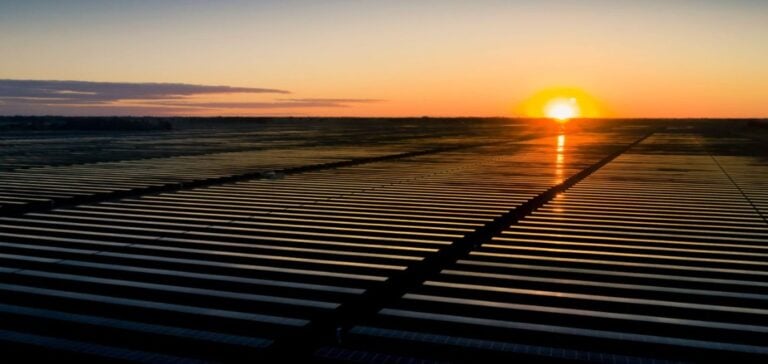The African solar park is set to grow considerably thanks to the future Ashama solar farm, which is set to develop 200 MW of power. Scheduled to take place in Nigeria, it will be the largest solar photovoltaic farm in West Africa. This project is the fruit of collaboration between Singaporean renewable energy company B&S Power Holding and Nigerian investment entity Sunnyfred Global.
It would then meet the energy needs of Nigeria, a country where 80 million people have no access to electricity.
Ashama solar park, the largest in West Africa
A 200MW power plant in Nigeria
The solar park is to be located in the village of Ashama in the Aniocha area of southern Delta State, Nigeria. It will occupy an area of around 304 hectares. The photovoltaic power plant is expected to have a capacity of 200 MW. As such, it will be the largest photovoltaic power plant in West Africa.
This new power plant will add to the existing fleet or those under construction in Africa’s most populous country. Back in December 2020, the Nigerian government signed a memorandum of understanding to deploy several solar systems in the country.
Presentation of the roadmap on February 25, 2021
More information on the project will be revealed at a press conference scheduled for Thursday, February 25, 2021. The project roadmap will then be presented. The theme of the event is “Sustainable and affordable access to energy for communities in Nigeria”, and it will highlight the importance of the project for the country.
The project presentation will be chaired by the eminent Aboubakar Sani Sambo, Vice-Chancellor of Usmanu Danfodiyo University in Sokoto. Also Chairman of the Ministerial Technical and Policy Advisory Committee on the Environment in Nigeria. But also former Director General of the Nigerian Energy Commission.
Other participants in the presentation will include professionals from B&S Power Holding and Sunnyfred Global.
Meeting Nigeria’s exponential needs with the Ashama solar park
The Ashama project is a real necessity for Nigeria. According to the World Bank, despite the efforts of the Nigerian government, millions of people still only have access to poor quality, patchy and intermittent service. Worse still, over 80 million Nigerians have no access to electricity at all.
What’s more, 60 million Nigerians spend over 1,600 billion naira a year on fossil fuel generators. The government is therefore aiming to develop the country’s solar park to offset the difficulties caused by the use of these fossil fuels.
Electricity is therefore inaccessible, unaffordable and unreliable for most people. This has consequences for all social strata. This means that clinics cannot refrigerate vaccines, and companies have shorter opening hours.
Today, more than 25 African countries are facing an energy crisis. Most have already launched electrification programs. For example, Côte d’Ivoire has decided to electrify all its rural areas by 2025. In August 2020, Mali inaugurated the country’s largest solar power plant.
In fact, the various countries are generally proposing ambitious medium- and short-term projects. Objective: to meet the electricity challenge in Africa without falling behind the global energy transition.






















